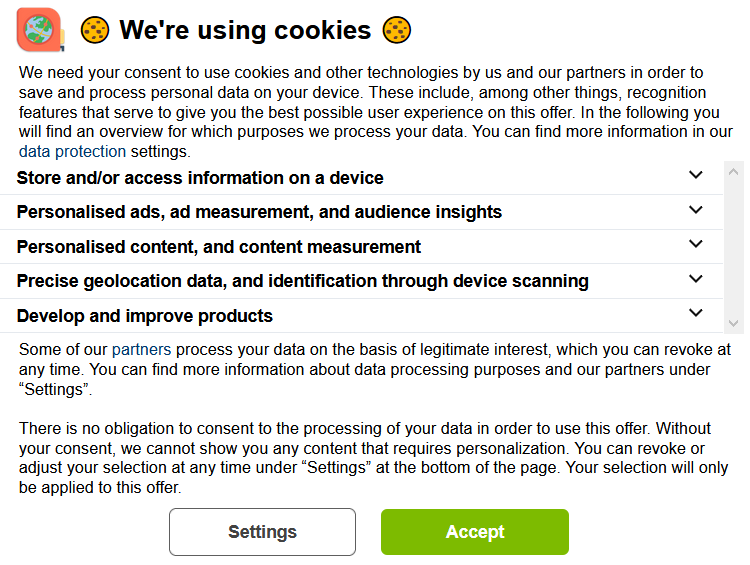Cookies are vital to how the internet works, allowing websites to save data on individual users to track preferences. Of course, this prompted fears about how this data was being handled and sold. In Europe this resulted in a 2009 revision to a low called the “e-Privacy Directive.” This law required websites to obtain consent from users before cookies could be uploaded to their devices.
While this law was well-intentioned, the end result is that users mindlessly click away the annoying cookies pop-up as soon as possible without bothering to read it. There are even browser extensions that do this for you, rendering the banner prompts redundant for the task they were supposed to perform.
Now, as part of a plan to cut red tape, the European Commission is considering how the rules might be revised to include more exceptions, or ensure that users only need to set their preferences once. For example, a user could then set their cookie preferences in the browser and never fear a pesky cookie pop-up again.

EU Officials have been meeting with representatives from the tech industry concerning plans to simplify technology regulation. The cookie and consent banners are just one aspect of the planned changes to the regulations. This forms part of an ongoing struggle between tech companies and privacy advocates. Previous attempts to change the regulation became bogged down as the scope of the changes expanded to cover everything from online advertising to issues involving national security.
“Too much consent basically kills consent. People are used to giving consent for everything, so they might stop reading things in as much detail, and if consent is the default for everything, it’s no longer perceived in the same way by users,” said Peter Craddock, data lawyer with Keller and Heckman, when speaking to POLITICO.
Others have quite a different view on the subject. Itxaso Domínguez de Olazábal, policy adviser at European Digital Rights had this to say: “Focusing on cookies is like rearranging deckchairs on the Titanic, the ship being surveillance advertising.”
The battle is set to continue, but users can at least hope for less annoying pop-ups in the future.


